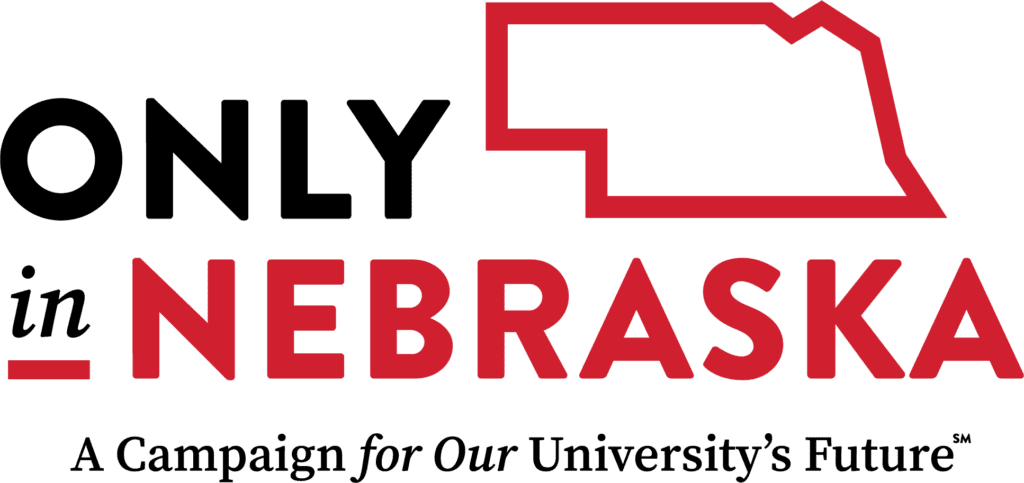Student’s travel abroad trip turns into life-changing experience
UNL student Ashley Schmidt witnessed this decision of life between two boys a few years ago when she worked at a hospital in Mali, West Africa.
The baby boys – twins – were born too early. Both needed oxygen, but the hospital had just one oxygen machine.
The parents had a choice: Which son would get the machine, and live, and which would not get it and die?
UNL student Ashley Schmidt witnessed this a few years ago when she worked at a hospital in Mali, West Africa. It shocked her.
It shocked her when the baby who didn’t get oxygen died a few days later.
“It was really hard to see,” she says, “and to know that there was literally nothing that I or anyone else could do.”
She saw other scenes like that during her six months in Mali, where machines and things she took for granted as a kid in Omaha, Neb., were expensive and scarce and could mean the difference between life and death.
She saw that life without easy access to energy was hard. She saw the importance of energy, and how it affects healthcare in the remote areas.
Ashley befriended the hospital’s IT guy, a Dutch engineer, who ran the hospital’s energy systems. He let her go out with him on trips to village clinics, where he installed solar panels and water pumps for clean water.
After returning to Nebraska, she thought of a way she could help.
Instead of studying for a career in medicine, she decided to study biosystems engineering. (“It didn’t take me long to realize that medicine wasn’t for me,” she says, smiling. “The first time I tried to help out with a C-section, I fainted.”)
A year and a half ago, she and a core group of five or six other UNL students founded the World Energy Project. The goal of the group is to bring renewable energy resources to developing countries around the world.
The students raised money. They grew in numbers and included engineering professors as advisors.
This past summer, Ashley and some others in the group returned to Africa. They installed solar-powered irrigation systems. They put together solar panels for an orphanage. They visited a university and made connections with faculty and other students.
Next summer, they have three more projects lined up – one at a hospital in Mali, one at a girl’s school in Kenya and one in Zambia.
That hospital in Mali runs off the country’s energy grid and a diesel generator. It’s expensive. It cuts into the hospital’s budget for medicine, doctors and nurses.
The World Energy Project team will install a 30-kilowatt system so the hospital can run mostly on solar energy.
The World Energy Project now has 35 to 40 students divided into three groups: the engineering and design team that actually designs the solar panels and handles the tech side of things; the marketing-advertising-public relations team that gets the word out; and the fund-raising team, which sets up events and calls donors.
Engineering professors advise them. Most of the students are from UNL, but some are from UNK and UNO and Creighton University.
“I am really excited with where it’s heading,” says Ashley, who’s the executive director. “I think we’re really gaining a lot of momentum. It seems to be something that students here at Nebraska really identify with and really get really excited about.”
Traveling abroad when you’re young is so important, Ashley says. She thinks it’s great the University of Nebraska has made it one of its fund-raising priorities.
She received the Global Gateway Scholarship and the Christian Lieding Scholarship this past summer. Both were technically to fund her two-week study abroad trip to Germany to study sustainability. But, she says, they also supported her trip to Africa.
“It got me to Europe, which is halfway to Africa!”
Experiencing Africa made a huge impact on the way she sees herself, she says, and those around her. It gave her a career path she’s passionate about, and an understanding of how she could use her education to help others.
It opened her eyes.
A typical day for a woman in that part of Africa, she says, means waking up with the sun and walking miles for the day’s water, which often isn’t clean. It means making food from scratch and taking four or five hours just to make one meal – usually the only meal of the day.
It means, if you’re a mom, that you often won’t name your baby for the few months until you’re sure it’ll survive.
“It’s impossible to turn my back on that and just kind of forget that I ever saw that,” Ashley says. “So I think that’s why I do this.”
Ashley and her teammates are grateful to the people who donated to help them get to Africa.
“I know that students are always really thankful when other people can help them experience things like that because a lot of times students don’t really have the income to be able to support travel to other places in the world,” she says.
“And so it really means a lot to those students to be able to do that, especially in their undergrad career when they are really forming their career plans and life plans and making big decisions about what they want to do with their career.”
If you’d like to support the university’s effort to promote global engagement and help students like Ashley change the world – one of the top priorities of the Campaign for Nebraska – please give online or contact the University of Nebraska Foundation at info@nufoundation.org or 800-432-3216.
If you’d like to help the World Energy Project, please visit their web site (www.worldenergyproject.org) or contact Ashley at ashley@worldenergyproject.org.





